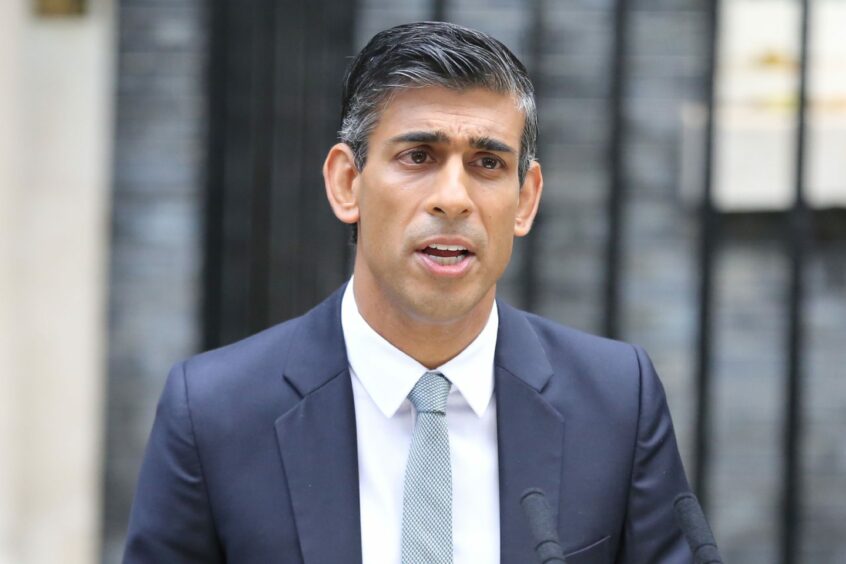
As fighting continues to rage in Sudan, a number of countries have evacuated personnel, including the UK.
Prime Minister Rishi Sunak reported yesterday that UK armed forces had carried out a “complex and rapid evacuation” of the country’s diplomats and their families. The move, he said, came “amid a significant escalation in violence and threats to embassy staff”.
The country has not evacuated non-diplomats. Sunak said the government was working to ensure the safety of those British nationals still in the country.
Around 2,000 British nationals remain in Sudan. There have been complaints that the UK government has abandoned them.
Minister for Africa Andrew Mitchell advised British nationals to stay indoors and avoid conflict. Should people decide to try and escape on their own, he warned, they did so at their own risk.
UK ambassador in Sudan Giles Lever said “we will continue working at pace on contingencies to support British nationals in country”.
Clashes
“I urge the parties to lay down their arms and implement an immediate humanitarian ceasefire to ensure civilians can leave conflict zones,” Sunak continued.
The conflict has killed around 500 people, as the Sudanese Armed Forces (SAF) and paramilitary group Rapid Support Forces (RSF) vie for control.
Officially a three-day ceasefire was announced on April 21, to mark the occasion of Eid al-Fitr. However, reports suggest fighting has continued.
The RSF and SAF did allow ceasefires in order to allow states to evacuate their citizens. However, foreign states such as the US have come under criticism for failing to use such pauses to advocate more for the two sides to put down their guns.
The RSF has accused the SAF of trying to reinstate the former regime. “We hold the [SAF’s] leadership and coup orchestrators fully accountable for undermining the people’s revolution, a movement for which countless young men and women have sacrificed.”
Moving out
France has begun evacuating its own nationals from Sudan. A first flight from Khartoum saw around 100 French nationals and other mainly Europeans flown out of the country. It also oversaw the removal of the European Union’s diplomatic staff.
Ireland has said it is working on evacuating its 150 citizens from Sudan. Around 50 Irish nationals have left Sudan in the last 24 hours to Djibout, with assistance from France and Spain.
Spain also has carried out an evacuation, sending its citizens to Djibouti. Italy has reported all of its citizens who wished to leave are on their way home today.
The RSF claimed credit for evacuating 41 Italian citizens from the embassy in Khartoum on April 23. “The RSF’s swift action is a testament to our commitment to protect citizens in times of crisis,” the group said.
The US evacuated its diplomats and their families on April 22. The US government has reported one of its citizens was killed in fighting.
Squeeze
Under Secretary for Management Ambassador John Bass explained on a conference call that the decision to close the US embassy had not been taken lightly.
The move followed an assessment of “access to fuel, availability of food, reliability of power, all of those things that you rely on to keep a pretty sizeable office building and operational complex up and running. And it was only as we looked through that and saw through the conflict continuing that we couldn’t reliably predict and depend on availability of fuel in the future, availability of food past a certain point in time, and other essentials for operations.”
The US government has deployed a Disaster Assistance Response Team (DART) to Kenya, initially, in order to coordinate a humanitarian response.
Saudi Arabia sent ships to remove civilians and diplomats from Port Sudan to Jeddah. Saudi also helped a number of other foreign nationals leave Sudan. A Saudi Arabian Airlines plane came under fire in Khartoum on April 15 as fighting broke out.
Weighing up options
Canada has issued a notice to its citizens that those wishing to leave should contact the Emergency Watch and Response Centre. It will likely work with other countries to help its citizens leave.
Nigeria has said it has set up a committee to “constantly evaluate the situation and seek for the safest way to evacuate the Nigerian citizens even if it is through a country neigboring Sudan”.
Sri Lanka has said it is monitoring the situation.
South Africa has said it has 77 citizens in Sudan. There is no diesel and poor network coverage, said South Africa head of public diplomacy Clayson Monyela.
“Fighting hasn’t stopped, so it remains a dangerous & risky operation. The Airport is closed & all routes are not risk free. [The South Africa government] is doing everything possible to get our nationals out. Without revealing security plans, there’s an option that is being implemented,” Monyela said.
